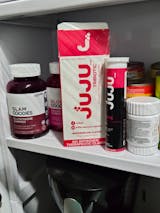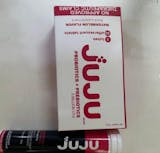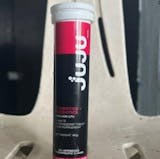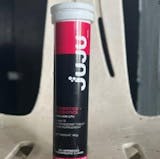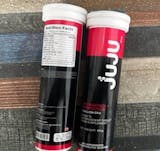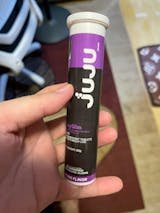In today's world, where countless slimming products and diets flood the market, it can be confusing to know what really works for weight loss. Many people fall for common myths that can lead to frustration and disappointment. In this article, we will explore five widespread myths about slimming products and clarify the truth behind them.
1. Weight Loss Medications
Weight loss medications are often misunderstood. Many people think they are a magic solution for losing weight. In reality, these drugs can help reduce appetite and lower calorie intake, but they are not a quick fix. Here are some key points to consider:
- Weight loss medications should be part of a broader plan that includes a balanced diet and regular exercise.
- Stopping the medication usually leads to regaining the lost weight.
- Not everyone will respond the same way to these medications; their effectiveness can vary significantly.
| Medication Type | Average Weight Loss | Common Side Effects |
|---|---|---|
| GLP-1 Agonists | 15% - 25% | Nausea, diarrhea |
| Older Medications | 3% - 5% | Constipation, headache |
Weight loss is a journey that requires effort and commitment. It’s not just about taking a pill; it’s about making lasting lifestyle changes.
In conclusion, while weight loss medications can be beneficial, they are not a standalone solution. They work best when combined with healthy eating and physical activity. Remember, weight-loss drugs: separating fact from fiction is essential for understanding their true role in weight management.
2. Fad Diets
Fad diets are popular plans that promise quick weight loss, but they often lack solid scientific backing. Many people are drawn to these diets because they seem to offer fast results. However, they can be misleading and may not lead to long-term success. Here are some key points to consider:
- Temporary Results: Fad diets may help you lose weight quickly, but once you stop, the weight usually comes back.
- Nutritional Gaps: Many of these diets restrict certain food groups, which can lead to missing out on essential nutrients.
- Unsustainable Practices: The strict rules of fad diets can be hard to follow for a long time, making them difficult to maintain.
| Fad Diets | Pros | Cons |
|---|---|---|
| Keto | Quick weight loss | Nutrient deficiencies |
| Paleo | Focus on whole foods | Hard to stick to |
| Juice Cleanses | Detoxification claims | Low energy and hunger |
Fad diets – promoting rapid weight loss without robust scientific evidence to support them – can be hard to ignore for people keen to lose weight quickly.
In conclusion, while fad diets may seem appealing, they often do not provide lasting results. A balanced diet combined with regular exercise is a more effective and healthier approach to weight loss.
3. Weight Loss Supplements
Many people believe that weight loss supplements can help them shed pounds quickly. However, the truth is that most of these products are either ineffective or potentially harmful. Here are some key points to consider:
- Hidden Ingredients: The FDA has found that many supplements contain hidden active ingredients that are actually prescription drugs or unsafe substances. This can make them dangerous to use.
- Placebo Effect: Some individuals may experience weight loss simply because they believe the supplement will work, leading to better eating habits.
- Limited Effectiveness: While a few supplements may help with weight loss, the results are usually modest and take time to notice.
| Supplement Type | Potential Effectiveness | Safety Concerns |
|---|---|---|
| Natural Ingredients | Low | Moderate |
| Prescription Ingredients | High | High |
| Over-the-Counter | Low to Moderate | High |
Important Note: Always consult with a healthcare professional before starting any supplement.
In summary, while some natural ingredients have been shown to support weight loss, they are generally less potent than prescription medications like GLP-1 receptor agonists. It's crucial to approach weight loss with a balanced diet and regular exercise rather than relying solely on supplements.
4. Low Fat Foods
Many people think that eating low fat foods is a great way to lose weight. However, this isn't always true. While these foods have less fat, they often have more sugar or salt to make them taste better. Here are some important points to consider:
- Reduced fat doesn't mean it's healthy. It just means it has less fat than the regular version.
- Always check the labels. Some low fat foods can still be high in calories.
- Eating low fat foods can lead to overeating because people think they can eat more since it’s low in fat.
| Type of Food | Fat Content | Sugar Content | Calories |
|---|---|---|---|
| Low Fat Yogurt | 2g | 15g | 150 |
| Reduced Fat Cheese | 5g | 1g | 100 |
| Low Fat Cookies | 3g | 10g | 120 |
Remember: Just because a food is labeled as low fat, it doesn't mean it's a good choice for weight loss. Always look at the whole picture of what you're eating!
5. Healthy Snacks
Snacking can be tricky. Some people munch on fruits, while others might reach for chips. Choosing the right snacks can help you feel full and avoid overeating. Here are some ideas for healthy snacks:
- Fruits: Apples, bananas, and berries are great choices.
- Vegetables: Carrots, cucumbers, and bell peppers with hummus.
- Yogurt: Low-fat yogurt with a sprinkle of nuts or seeds.
Why Healthy Snacks Matter
Healthy snacks can help control hunger and keep you from eating too much at meals. They can also provide important nutrients your body needs.
The Impact of Snacking on Weight
Research shows that people who snack on healthy foods may have better weight management. Here’s a quick look at how different snacks can affect your diet:
| Snack Type | Calories | Nutritional Benefits |
|---|---|---|
| Fruits | Low | Vitamins, fiber |
| Vegetables | Very Low | Vitamins, minerals |
| Low-Fat Yogurt | Moderate | Protein, calcium |
Healthy snacks can be delicious and satisfying. Try combinations like yogurt with berries, carrots with hummus, or bananas with peanut butter. These combos are balanced, satisfying snacks.
In conclusion, snacking doesn’t have to be bad for you. It’s all about what you choose to eat. Opt for healthy snacks to support your weight loss goals!
Key Takeaways
- Weight loss medications are not a quick fix; they work best when combined with a healthy diet and exercise.
- Fad diets might lead to quick results but are usually not sustainable in the long run.
- Weight loss supplements often lack effectiveness and can even be harmful; a balanced diet is more beneficial.
- Low-fat foods may contain added sugars or salts, which can hinder weight loss efforts.
- Healthy snacks can contribute to weight gain if eaten in excess; moderation is key.
Conclusion
In conclusion, it's clear that many common beliefs about weight loss products are misleading. While the journey to losing weight can be tough, understanding the truth behind these myths can help you make better choices. Instead of relying on quick fixes or fad diets, focus on creating a balanced lifestyle that includes healthy eating and regular exercise. Remember, real change takes time and effort, and it's important to celebrate the small victories along the way. If you're unsure where to start, consider talking to a health expert who can guide you in finding a plan that works for you.
Frequently Asked Questions
What are weight loss medications, and do they really work?
Weight loss medications can help reduce hunger and lower calorie intake, but they are not a quick fix. They work best when combined with healthy eating and exercise.
Are fad diets effective for long-term weight loss?
Fad diets might help you lose weight quickly, but they are usually not sustainable. Once you stop the diet, the weight often comes back.
Do weight loss supplements guarantee results?
Most weight loss supplements do not work as advertised. Some might help a little, but many are ineffective and can even be dangerous.
Is it true that low-fat foods are better for losing weight?
Not necessarily. Low-fat foods can have added sugars or salts that make them unhealthy. It's important to read labels carefully.
Can I snack while trying to lose weight?
Yes, snacking can be part of a healthy diet. The key is to choose healthy snacks and watch portion sizes.
How can I find a weight loss plan that works for me?
Finding the right weight loss plan takes time and may require trying different approaches. Consulting a healthcare professional can help you create a plan that fits your needs.



